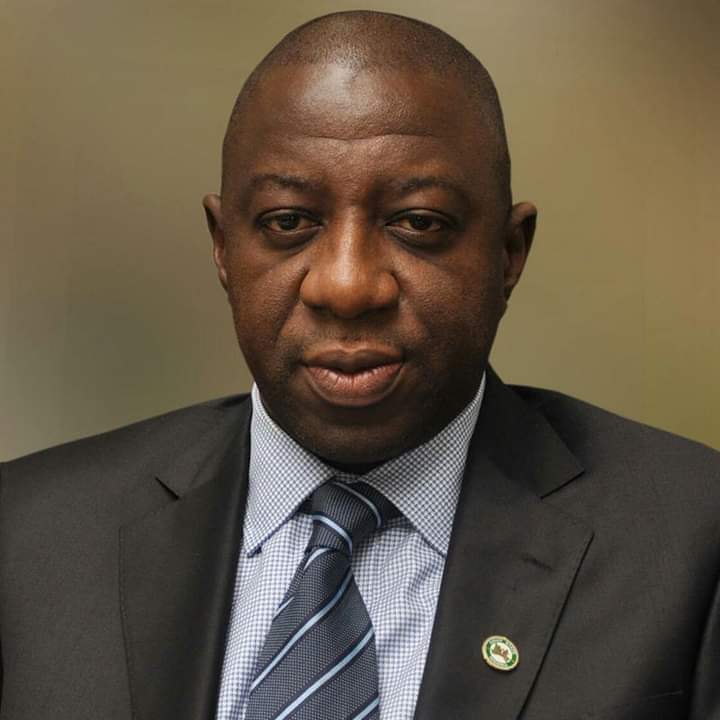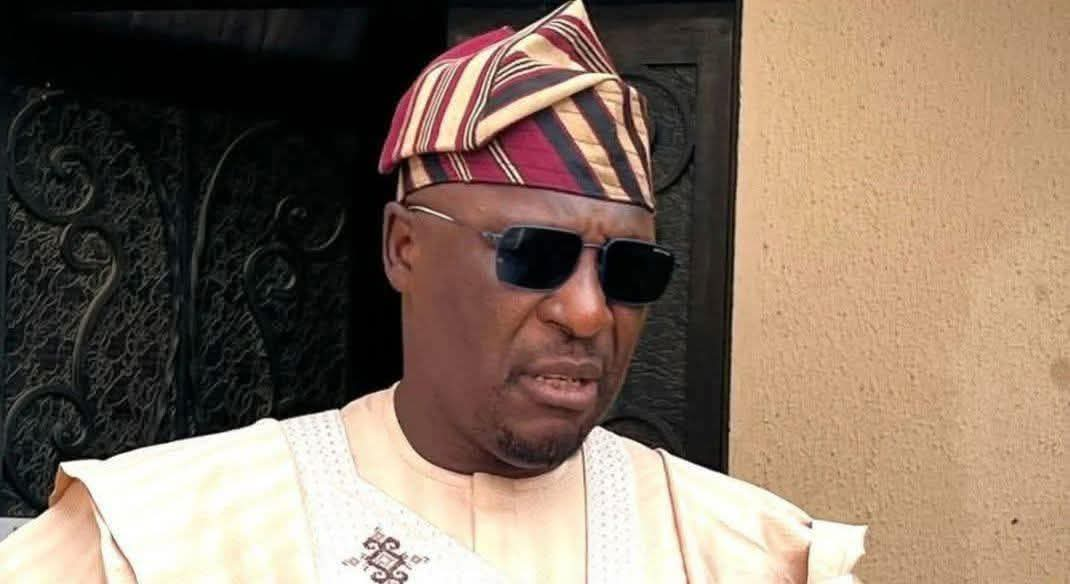News
NCC Highlights Measures to Deepen Internet Connectivity for Businesses, Nigerians

Nasiru Yusuf
The Nigerian Communications Commission (NCC) has explained some of the key measures it is taking to ensure broadband and internet connectivity impact businesses and individual teelcoms users in Nigeria.
KANO FOCUS reports that the Commission has also stated how instrumental the ongoing implementation of the new Nigerian National Broadband Plan (NNBP), 2020-2025 and its Strategic Vision Plan (SVP), 2021-2025 can drive development of new technologies and local content in Nigeria.
According to the Executive Commissioner, Stakeholder Management (ECSM) at NCC, Adeleke Adewolu, who spoke at a breakout session at the recent 2021 Annual General Conference of the Nigerian Bar Association, which took place in Port Harcourt, one of the key policy instruments that guide the development of the sector is the NNBP.
“The Nigerian National Broadband Plan (NNBP), 2020-2025 has four critical pillars which are: Infrastructure, Policy, Demand Drivers and Funding/Incentives,” he said.

He asserted that the NNBP is unique in many respects. One is the fact that it clearly defines ‘broadband’ for Nigeria as “connectivity delivering a minimum of 10 Mbps in rural areas and a minimum of 25 Mbps in urban areas to every Nigerian at an affordable price and quality.”
On the other hand, he said the Strategic Vision Plan (SVP) 2021-2025 is a template developed by the NCC to streamline regulatory focus for better efficiency, in alignment with relevant policy instruments.
“For the next five years, the Commission is focusing its energies on five strategic pillars. These are: Organizational renewal for operational efficiency and Regulatory excellence; Provision of infrastructure for a digital economy which fosters national development; Improved Quality of Service (QoS) for enhanced Consumer Quality of Experience (QoE); Promotion of fair competition, inclusive growth, increased investment and innovative services; and Strategic Collaboration and Partnership,” he emphasised.
Adewolu declared that “the impact of connectivity on businesses and the economy, in terms of the impact of internet connectivity on businesses and the national economy is well documented.”
He recalled that 10 per cent increase in mobile broadband penetration results in approximately 0.6 per cent to 2.8 per cent rise in Gross Domestic Product (GDP).
Furthermore, he affirmed that everyone is a witness to the revolutionary impact of the internet connectivity for agriculture, health, education, information and communication, as well as entertainment.
This is besides notable revolution in banking and financial services as we can see in the deployment of Automated Teller machines (ATMs) and banking software.
“All industries now rely on internet connectivity provided by our mobile networks to function, such that it is impossible to imagine life without connectivity.
“In concrete terms, the Nigerian telecommunications industry has continued to lead national economic growth,” he said.
According to him, in recent years, the telecoms sector has consistently driven the growth of the Nigerian economy and has provided critical infrastructure powering the digital transformation of practically all spheres of life.
Adewolu said that in the second quarter of 2021, the Information and Communication Technology (ICT) sector sustained its growth trajectory and contributed 17.9 per cent to national GDP. He attributed this to the growth in the telecoms sub-sector.
“This trend demonstrates how much our industry is supporting the achievement of Government’s drive to diversify Nigeria’s economy and to ensure inclusive growth across all other sectors,” he said.
According to the ECSM, in practical terms, it is difficult to imagine how Nigeria and indeed the global economy could have fared without the internet during the peak of the Covid-19 pandemic.
He insisted that the fact that the conference was holding in hybrid format was just an indication of the benefits that connectivity, which the Commission is driving, brings.
On local content, Adewolu stated that all the major policy instruments emphasised the need for Nigerians to take bigger roles in the ownership and management of major spheres in the sector.
He also added that Mr. President recently launched the National Policy for the Promotion of Indigenous Content in the Nigerian Telecommunications Sector, which articulated very clear policy objectives and strategies for increasing local participation.
“It would interest you that the NCC has established a National Office for the Development of Indigenous Content in the Telecommunications Sector (NODITS) to drive the attainment of Policy objectives,” he said.
Adewolu contended that, taken together, the instruments enable NCC to aggressively drive infrastructure development, ensuring that available, accessible and affordable access to broadband infrastructure and services for all Nigerians are safeguarded.
He expressed hope that, by the end of the NNBP’s lifecycle, the country will achieve the target of reaching an effective coverage of, at least, 90 per cent of the population at a price not more than N390 per 1GB of data.

News
FRSC deploys senior officers to Kano for sensitisation on discipline, operational efficiency

Nasiru Yusuf Ibrahim
The Federal Road Safety Corps (FRSC) has deployed a team of senior officers to the Kano Sector Command to sensitise personnel on discipline, professionalism and improved operational efficiency.

KANO FOCUS reports that the team, led by Assistant Corps Marshal Mohammed Hafiz Tarauni, is expected to engage officers and men of the command on strengthening command and control mechanisms during field operations.
This was contained in a statement issued by the Sector Public Education Officer of the FRSC Kano Sector Command, CRC Abdullahi Labaran.
According to the statement, the sensitisation programme is scheduled to take place at the Special Marshal Conference Hall and forms part of the corps’ ongoing efforts to reinforce discipline and enhance operational effectiveness among personnel.
“The programme will focus on maintaining high standards of discipline, professionalism and effective coordination in the discharge of duties,” the statement said.
It added that the engagement would also strengthen command structures within the sector command to ensure improved operational performance and efficient service delivery.
The statement further noted that the initiative is part of the corps’ continuous commitment to building a disciplined, responsive and result-oriented workforce capable of delivering on its mandate of ensuring safer roads across the country.
Labaran urged personnel of the command to actively participate in the programme, describing it as an opportunity to interact with senior officers, share experiences and receive guidance on best operational practices.

Headlines
Kano Govt delegation visits Portugal on study tour for light rail project

Nasiru Yusuf Ibrahim
A high-powered delegation from the Kano State Government is currently in Lisbon, Portugal, on a study tour as part of preparations for the proposed Kano Light Rail Project.

KANO FOCUS reports that the delegation is led by the Commissioner for Transportation, Barrister Haruna Isa Dederi, alongside the Chairman of the Kano Line Resuscitation Committee, Hon. Alhaji Saeed Abdullahi Shuaibu.

This was disclosed in a statement issued on Wednesday by Ibrahim Ado Sabari, Information Officer of Kano Line.
According to the statement, the team is engaging with leading transport and engineering institutions, including Mota-Engil and MTS – Metro Transportes do Sul, in Lisbon and Almada to gain technical insights into rail infrastructure development.
The study tour is part of the Kano State Government’s efforts under the leadership of Governor Abba Kabir Yusuf to establish a modern rail network within Kano metropolis and surrounding areas.
The proposed Kano Light Rail Project is aimed at improving urban mobility, reducing traffic congestion and stimulating socio-economic development across the state.
Officials from the Kano State Ministry of Transport and Kano Line are expected to study rail operations, maintenance systems, safety standards and sustainable transport financing models during the visit.
The delegation is also exploring opportunities for technical partnerships, knowledge exchange and possible investment collaborations to ensure the long-term efficiency and sustainability of the project.
Meanwhile, the Federal Government under President Bola Ahmed Tinubu has approved the sum of N1 trillion for the establishment of the Kano Light Rail Project under the Renewed Hope Agenda.
When completed, the project is expected to connect major residential, commercial and industrial hubs within Kano metropolis, create employment opportunities, facilitate trade and improve access to key urban centres.
The Kano State Government said it remains committed to delivering a modern, reliable and efficient rail transport system that meets international standards and addresses the growing transportation needs of residents.

Headlines
Majidadin Dambatta congratulates Doguwa on emergence as Kano APC chairman

Nasiru Yusuf Ibrahim
Alhaji Aliyu Lawan, popularly known as Majidadin Dambatta, has congratulated Alhaji Umar Haruna Doguwa on his election as Chairman of the All Progressives Congress (APC) in Kano State.

In a congratulatory message shared via Facebook, Lawan described Doguwa’s emergence as well deserved and expressed confidence in his ability to lead the party effectively in the state.
He also extended his congratulations to other executive members elected alongside Doguwa into various party offices, noting that their emergence reflects the trust and confidence reposed in them by party members and stakeholders across Kano State.
According to him, the development is a clear testament to the dedication, loyalty and commitment of the newly elected leaders to the unity, stability and progress of the party.
Lawan further prayed that Allah grants the new chairman and his team wisdom, strength and foresight as they assume the responsibility of steering the affairs of the APC in Kano State.
He expressed optimism that the new leadership would promote harmony, inclusiveness and effective leadership within the party, while bringing renewed vigour, unity and success to the APC in the state and beyond.












